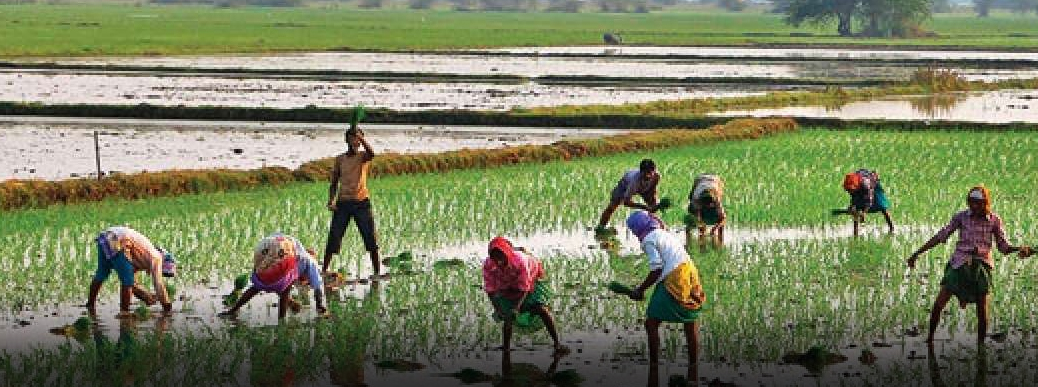MSP Hiked
23, Jul 2018

Union government hiked MSP for 15 kharif crops including paddy and pulses.
MSP:
What:
Minimum Support Price (MSP) is a form of market intervention by the Government of India to insure agricultural producers against any sharp fall in farm prices. It is a price at which the government buys crops from farmers, irrespective of its price.
When:
The minimum support prices are announced by the Government of India at the beginning of the sowing season for certain crops on the basis of the recommendations of the Commission for Agricultural Costs and Prices (CACP).
How:
CACP takes into account a comprehensive view of the entire structure of the economy of a particular commodity or group of commodities and include cost of production, changes in input prices, input-output price parity, trends in market prices, demand and supply, inter-crop price parity, effect on industrial cost structure, effect on cost of living, effect on general price level, international price situation, parity between prices paid and prices received by the farmers and effect on issue prices and implications for subsidy.
Different Ministries and Departments help the Commission to arrive at the MSP.
The lowest base A2- the one at which the minimum support price of most crops is at now, calculates only the cost of inputs for the farmer.
- The second base A2+FL-includes the imputed cost of unpaid family labour.
- The highest base C2- all of this and the imputed value of fixed capital assets and rental value.
Commodities covered:
- The MSP covers 23 crops that includes Cereals-paddy, wheat, barley, jowar, bajra, maize and ragi. Pulses-gram, arhar/tur, moong, urad and lentil.
- Oilseeds – groundnut, rapeseed/mustard, toria, soybeans, sunflower seed, sesamum, safflower seed and Niger seed. Others-copra, raw cotton, raw jute and Virginia flu cured (VFC) tobacco.
OR -
Khari crops:
Paddy, Bajra, Jowar, Maize, Ragi, Arhar, Moong, Urad, Cotton, Groundnut, Sunflower seed, soyabean black, Sesamum, Nigerseed.
-
Rabi crops:
Wheat, Barely, Gram, Masur, Rapseed, Safflower, Toria.
-
Other crops:
Copra, cotton, Jute, Sugarcane, Tobacco.
How it helps:
- MSP provide guarantee market for agriculture produce.
- The MSP helps to incentivize the framers and thus ensures adequate food grains production in the country.
- Support prices generally affect farmers decisions indirectly, regarding land allocation to crops, quantity of the crops to be produced etc. It is in this angle that the MSP becomes a big incentive for the farmers to produce more quantity.
- I gives sufficient remuneration to the farmers, provides food grains supply to buffer stocks and supports the food security programme through PDS and other programmes.
Problems in MSP:
- A rise in the MSP will lead to increase in food inflation.
- The Government of India has an MSP for 25 crops, but official procurement at the MSP is effectively limited to rice and wheat, and that too concentrated in a few States only.
- The procurement price will be announced soon after the harvest. Normally, the procurement price will be higher than the MSP, but lower than the market price.
- National Sample Survey’s (NSS) Situation Assessment Survey of Agricultural Households 2013, even for paddy and wheat, less than one-third of farmers were aware of the MSP; for other crops, such awareness was negligible.






